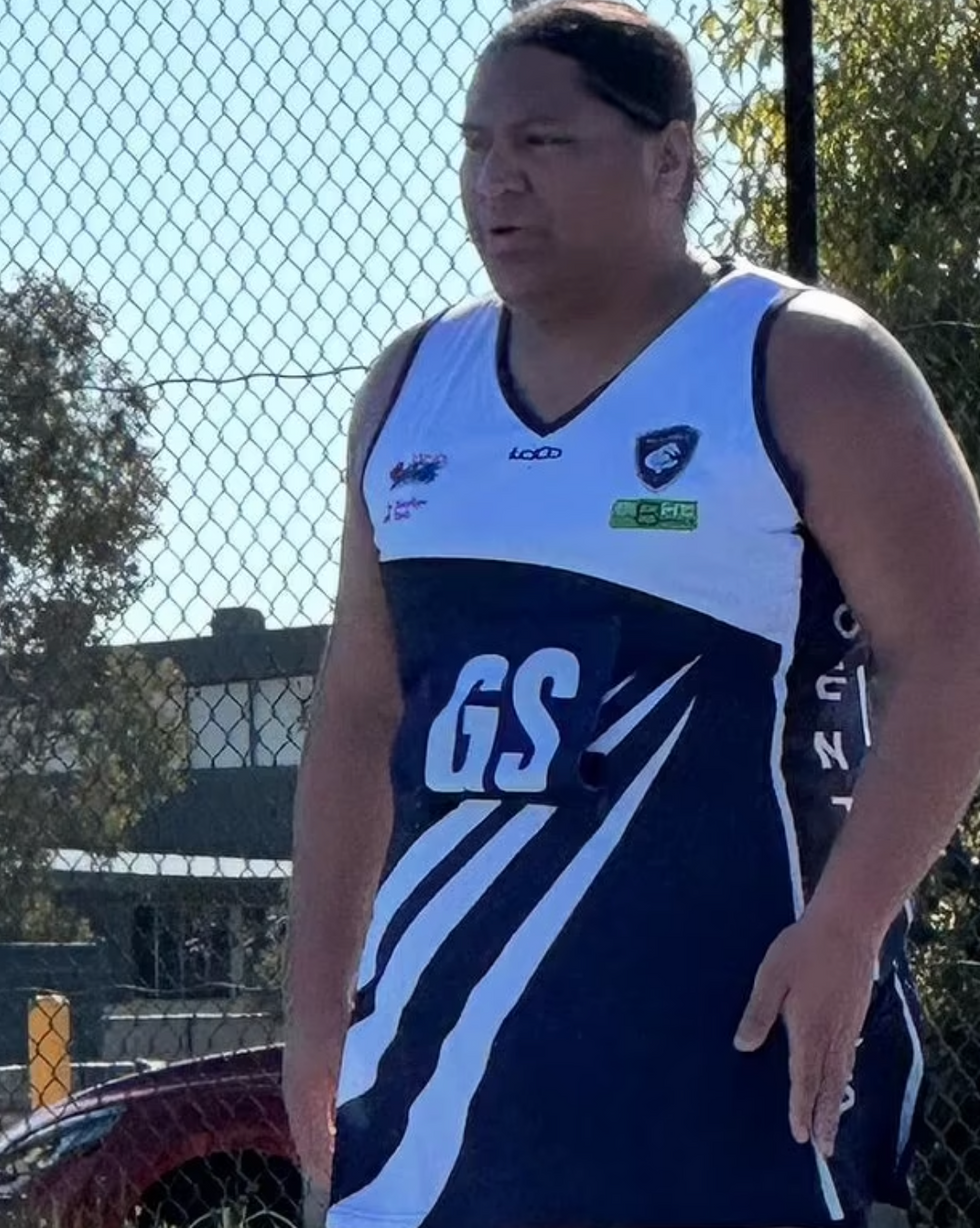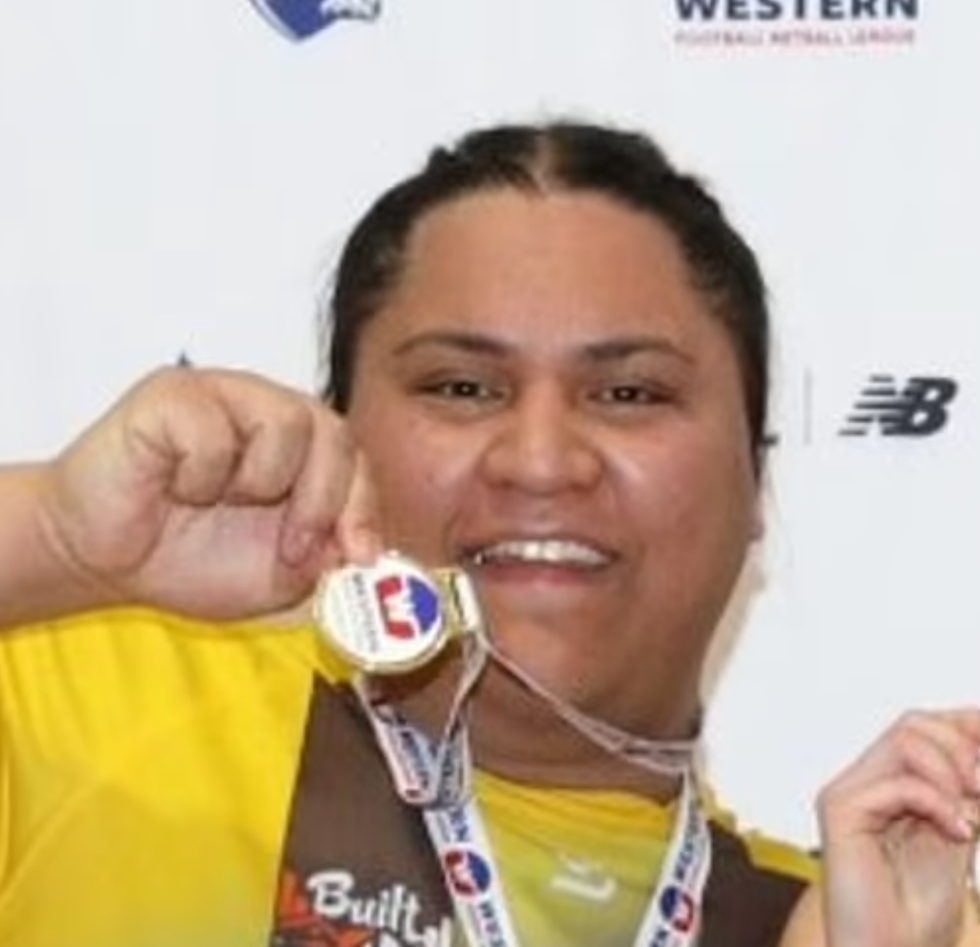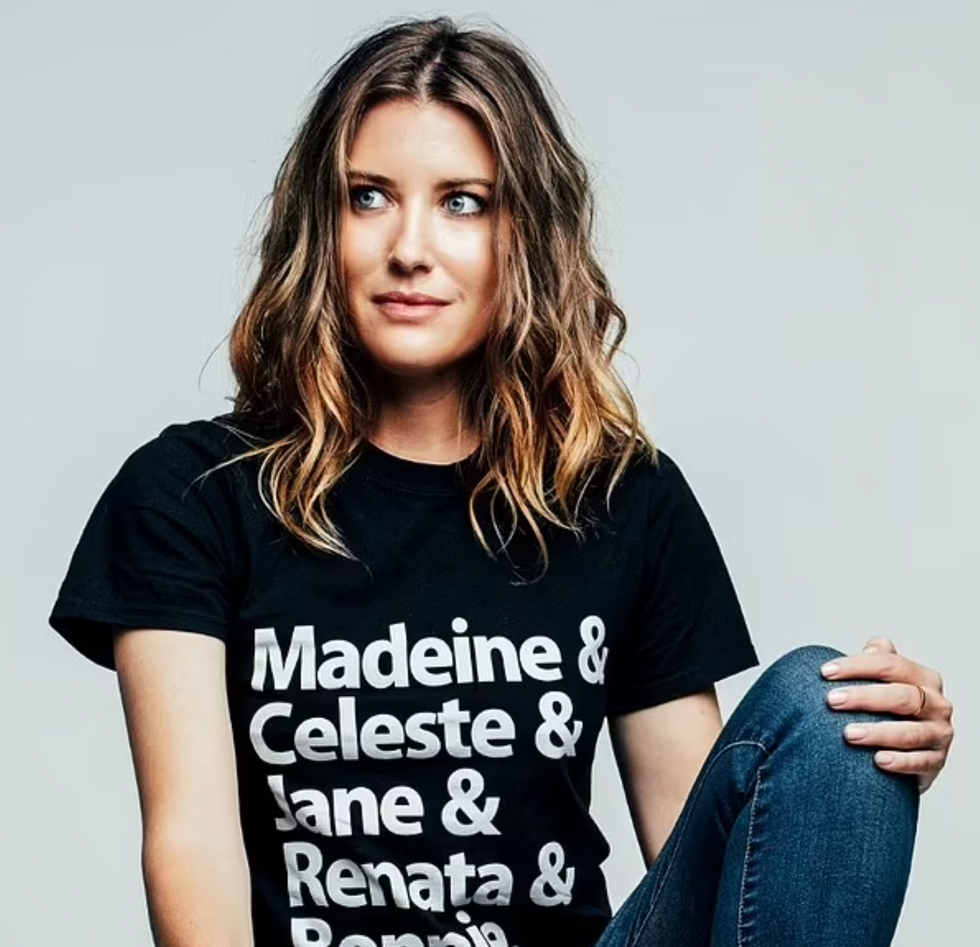



Women's rights campaigner Sall Grover has called for transgender athlete Manawa Aranui to be immediately excluded from women's netball in Melbourne.
Grover, who founded the women-only social media platform Giggle for Girls, claims Aranui is putting players at risk and undermining female sport.
Her comments come after Melton South Netball Club threatened to boycott matches against Melton Central, where Aranui plays.
The controversy has intensified since Aranui, a former elite men's netballer who transitioned, was named best on ground in a Division 1 grand final.

Manawa Aranui is competing in a Melbourne netball competition
Players have cited safety concerns as the primary reason for opposing Aranui's participation.
Melton South players have been vocal about their safety concerns when competing against Aranui.
Coordinator Melissa Dawson said: "One of the players is six foot something - it's ridiculous. Netball Victoria needs to put the safety of biological females first."
The concerns extend beyond height advantages. One B Grade player told News Corp: "I went up for the ball and just got pushed and dropped. They're so much stronger. I'm genuinely scared I'll get hurt."
These testimonials have fuelled the growing debate about transgender participation in women's sport across Melbourne's netball community.
Grover has questioned why transgender athletes aren't directed to existing mixed-sex competitions.
Emma Raducanu 'hopes Andy Murray has forgiven her' and 'still feels bad' ahead of French Open

Players have threatened to boycott matches involving Manawa Aranui
"There are many mixed-sex netball competitions at the recreational level," she said. "Everyone on those teams is making a choice to participate in a mixed-sex competition."
She drew parallels with other sports to illustrate her point, saying: "Everyone needs to remember, no one is having to do inquiries into whether females can compete on the Wallabies rugby union team, for example.
"Males on female teams put the females in danger, while taking away the limited opportunities there are for sportswomen."
Grover believes current legislation already provides solutions. She said: "There are protections in the Sex Discrimination Act for female-only sport - look them up."
In response to the controversy, Netball Victoria has launched a formal investigation.
An independent expert has been engaged to review safety concerns and determine whether policies have been correctly applied.
The organisation has publicly reaffirmed its commitment to inclusion.
Lineker in tears as BBC Match of the Day host admits 'it wasn't meant to end this way' in last show
"We support and welcome netballers of all backgrounds," a spokesperson said. "That includes gender diverse players who have rights under anti-discrimination laws."
The spokesperson added: "Our goal is to ensure every player feels safe, valued and supported.
"We are working closely with affected clubs to find a resolution that is lawful, inclusive and safe for all participants.
"Netball Victoria's current policy, introduced in 2018, allows transgender and non-binary players to compete in female competitions based on self-identified gender rather than legal sex.
The policy was developed in partnership with Proud 2 Play. It aligns with national guidelines from the Australian Sports Commission and the Australian Human Rights Commission.
This approach has drawn criticism from some quarters but support from others.

Sall Grover has called for a transgender player to be removed from a Melbourne competition
Aranui has already been ruled ineligible by the Ballarat Football Netball League following legal advice about strength, stamina, and physique being relevant to competition.
Equality Australia, which advocates for LGBTQ+ rights, has also weighed in on the debate. The organisation stated there is no case for blanket bans on transgender athletes.
"Community-level sport should focus on inclusion and participation," a representative said.
Beau Newell from Equity Australia added: "Sport is for everyone, and [Australian Institute of Sport] guidelines reaffirm the need that sporting bodies play their part in providing a safe and inclusive environment for all."
Grover, who is currently appealing a Federal Court ruling against her for excluding a transgender woman from her app, insists her position is not motivated by hatred. "My stance is about safety, fairness and reality," she said.
She emphasised the fundamental rights of female athletes. "It's about women having the right to play sport without fear of injury or losing opportunity."
Her comments highlight the tension between inclusion and what some see as the protection of women's sports.
"Everyone needs to ask themselves why female sport exists in the first place," Grover said. "It's because male and female bodies are different, and bodies play sport."
The controversy reflects a broader debate about transgender inclusion in women's sports that continues to divide opinion across Australia.
Aranui's case has become emblematic of the tensions between inclusion and concerns about competitive fairness.
"Sex-segregated sport gives women and girls the opportunities to excel that wouldn't be possible if there were no exclusive women and girls' categories," Grover argued.
The inconsistent application of policies between different leagues has further complicated matters.
While some sporting bodies have taken definitive stances, others remain caught between competing legal interpretations and community expectations.
Netball Victoria's investigation results are eagerly awaited by all parties involved.
The outcome of this controversy could set precedents for transgender participation in women's sports throughout Australia and potentially beyond.
